We all know the 2020 MLB season will be unlike any other (assuming it gets off the ground in the first place), with the usual 162-game marathon replaced by a 60-game sprint. Now that the abbreviated schedule has been announced, we have some games to talk about.
How it will work
• Each team will play 10 games against each of the other teams in its division, for a total of 40 games.
• Each team will play 20 interleague games against the teams in its corresponding geographic division (AL East vs. NL East, AL Central vs. NL Central, AL West vs. NL West). Six of those 20 games will be against a team’s “natural interleague rival” (Yankees-Mets, White Sox-Cubs, etc.).
• Opening Day will be July 23, and two games will be played, with the other teams playing their first games July 24. The regular season is scheduled to end Sept. 27.
• The postseason will follow the usual format, with the two wild-card teams in each league meeting in a one-game playoff, and the winners advancing to play the division winners.
• Don’t forget about the rule changes for 2020: universal DH, three-batter minimum for pitchers, and extra innings start with a runner on second base.
Matchups we can’t wait to see
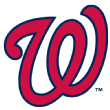
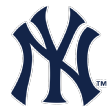 Washington Nationals vs. New York Yankees
Washington Nationals vs. New York Yankees
The dates to circle: July 23-26
The last time we saw Max Scherzer, he gutted out five innings in Game 7 of the World Series — just three days after being scratched from his Game 5 start, before which he woke up and couldn’t lift his arm above his head, and his wife had to help him get dressed. The last time we saw Gerrit Cole, he was warming up in the bullpen late in that game — but he never entered, even though the Astros blew a 2-0 lead as the Nationals scored six runs in the final three innings. The shortened season should open with Scherzer and the defending champions facing off against Cole and his new team. It’s a perfect matchup to get the baseball juices flowing.
MLB Opening Day games on ESPN
July 23: Yankees at Nationals (7 p.m. ET), Giants vs. Dodgers (10 p.m. ET)
July 24: Braves-Mets (4 p.m. ET), Brewers-Cubs (7 p.m. ET), Angels-A’s (10 p.m. ET)
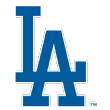
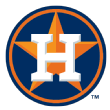 Los Angeles Dodgers vs. Houston Astros
Los Angeles Dodgers vs. Houston Astros
The dates to circle: July 28-29
The original schedule featured the AL West playing the NL East, but the new schedule aligns geographically, with each division playing the corresponding division from the other league. For the Dodgers, that means another anticipated showdown with the Astros in a rematch of the 2017 World Series. The health and safety protocols include additional prohibitions against unsportsmanlike conduct, such as engaging in altercations on the field, which is a kinder way of saying, “No brawls, gentlemen.” What happens if a Dodgers pitcher throws high and tight to an Astros batter? On the other hand, given the nature of this season and with presumably no fans in the stands, maybe the whole sign-stealing narrative with the Astros will fail to become the big story it otherwise would have. The teams play another two-game series in Los Angeles in September.
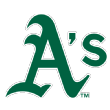
 Oakland Athletics vs. Houston Astros
Oakland Athletics vs. Houston Astros
The dates to circle: Aug. 7-9
The 10 games between the A’s and Astros will be interesting enough as the A’s attempt to wrest the AL West title away from Houston, but they will be even more interesting when Oakland starter Mike Fiers pitches against his former team. Fiers was the whistleblower who kick-started the investigation into the Astros sign-stealing scandal with his public revelation of what happened in 2017. The Astros won the season series 11-8 in 2019, but the A’s have a reconstructed rotation that should include rookies Jesus Luzardo and A.J. Puk. The Astros bashed 41 home runs in 19 games against Oakland last season, so the A’s will have to keep Alex Bregman, Yordan Alvarez & Co. in the yard.
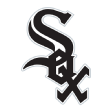
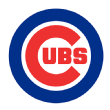 Chicago White Sox vs. Chicago Cubs
Chicago White Sox vs. Chicago Cubs
The dates to circle: Aug. 21-23
After a slew of offseason additions that included Yasmani Grandal, Dallas Keuchel, Edwin Encarnacion and Gio Gonzalez, plus rookies Luis Robert and Nick Madrigal ready to join the lineup, enthusiasm is high on the South Side, with the White Sox seeking their first playoff appearance since 2008. That’s also the only season since the Chicago teams met in the 1906 World Series that both made the playoffs. It could happen again in 2020, making this city series one of the best interleague matchups of the year. It has been a long time since Chicago was a White Sox town (the White Sox last outdrew the Cubs in the early ’90s). Maybe Chicago can at least become a two-team baseball city again.

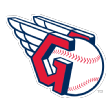 Minnesota Twins vs. Cleveland Indians
Minnesota Twins vs. Cleveland Indians
The dates to circle: Aug. 24-26
The White Sox might make it a three-team race in the AL Central, but at minimum, we should see another good battle between the Twins and Indians — and a contrast in styles between the mashing Twins, who set the single-season home run record in 2019, and the rotation depth of the Indians. In last year’s meetings, each team scored 79 runs, with Cleveland winning the season series 10-9. Note that the Twins averaged 6.0 runs per game against non-Cleveland opponents but just 4.2 against the Indians. This is the second of three series between the teams, with the third coming in mid-September in Minnesota, meaning the Twins will get seven of the 10 games at home. (Note: It will be interesting to see how home-field advantage plays out this year without fans).

 Tampa Bay Rays vs. New York Yankees
Tampa Bay Rays vs. New York Yankees
The dates to circle: Aug. 31- Sept. 2
The Yankees assumed first place for good on June 15 of last season, jumped to a seven-game lead by the end of the month and cruised to their final seven-win margin over the Rays. It helped that they went 17-2 against the Orioles, but they cleaned up against the entire division, going 52-22 vs. the AL East, including 12-7 against the Rays. That doesn’t tell the whole story, though, as the Yankees also outscored the Rays 96-56. The Rays have a chance to win the division, but they’ll have to do better in their 10 games against the Yankees. The Rays and Yankees play all three of their series between Aug. 6 and Sept. 2.
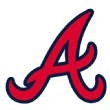
 Atlanta Braves vs. Washington Nationals
Atlanta Braves vs. Washington Nationals
The dates to circle: Sept. 4-6
The Nationals are the defending champs, but the Braves are the defending NL East champs. The Braves have to replace Josh Donaldson’s production in the middle of the lineup, but they added Marcell Ozuna, who could assume DH duties (no pitchers hitting in the NL this year!), and will count on continued improvement from Ronald Acuna Jr., Ozzie Albies and Dansby Swanson. The Braves won the season series 11-8 last season — even though Nationals pitchers held Freddie Freeman without a homer in 19 games. Juan Soto, meanwhile, hit .303/.453/.636 against Atlanta. The teams will meet seven times in 10 days between Sept. 4 and 13.

 Cincinnati Reds vs. St. Louis Cardinals
Cincinnati Reds vs. St. Louis Cardinals
The dates to circle: Sept. 11-13
The Reds were the most active team in the NL in the offseason, bringing in Mike Moustakas, Nicholas Castellanos, outfielder Shogo Akiyama from Japan and Wade Miley. Plus, they’ll have Trevor Bauer in a rotation that includes Luis Castillo and Sonny Gray. On paper, it looks like the best rotation in what appears to be a wide-open NL Central. The Reds went 7-12 against the Cardinals in 2019 and haven’t won a season series against them since 2011. They’ll need to improve their 24-33 record in one-run games if they want to climb over .500 for the first time since 2013.

 Atlanta Braves vs. New York Mets
Atlanta Braves vs. New York Mets
The dates to circle: Sept. 18-20
One key factor with the schedule will be the strength of the divisions — not just each team’s division but also its counterpart in the other league. In a normal 162-game schedule, teams play 47% of their games within their division. This year it will be 67% (40 of the 60 games), with the other 20 coming against their corresponding geographic division. That could be tough for a team such as the Mets, who will have to navigate the Braves, Nationals and Phillies 30 times — and then play the Yankees, Rays and Red Sox in interleague action. The Mets will end the season with 10 tough games, facing the Braves, Rays and Nationals.
Final weekend
The dates to circle: Sept. 24-27
Here are the most interesting series in the final days of the regular season:
Brewers at Cardinals (four games)
Mets at Nationals (four)
Astros at Rangers (four)
Cubs at White Sox (three)
Red Sox at Braves (three)
Angels at Dodgers (three)
Reds at Twins (three)
There are a lot of season-ending interleague series, which means increased potential for more games to have meaning if the playoff races are tight.
Credit: Source link